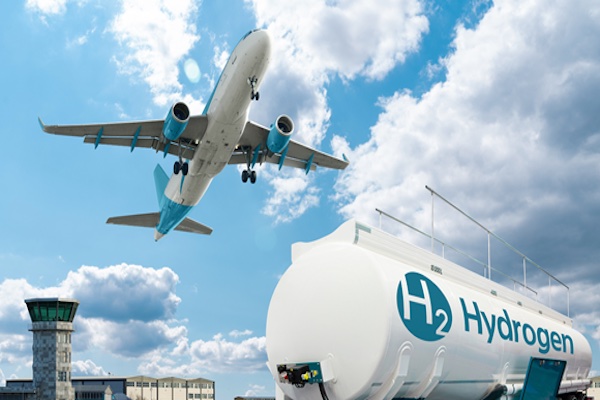EasyJet, in collaboration with Bristol Airport, has successfully conducted its first hydrogen-fuel trial.
This pioneering trial marks a significant step towards decarbonising the aviation industry, demonstrating the fuel’s potential for safe and reliable use in airport operations.
Pioneering Hydrogen-Fuel Implementation
In a first for UK aviation, EasyJet and Bristol Airport have completed a groundbreaking hydrogen-fuel trial. The trial involved using hydrogen to refuel and power essential ground support equipment (GSE), such as baggage tractors, part of the airline’s daily operations.
Dubbed Project Acorn, this initiative showcased hydrogen’s capability to be safely and reliably used in an airport environment. The project’s success is set to pave the way for further hydrogen implementation in aviation.
Developing Safety Guidance and Regulatory Framework
Results from this trial will be instrumental in creating the first-ever safety guidance for hydrogen use at airports. This data will also contribute to the development of a regulatory framework for hydrogen.
The Civil Aviation Authority (CAA) played a crucial role in overseeing the safety measures of the trial. The CAA’s involvement ensures that the project aligns with current industry standards and safety protocols.
This trial is anticipated to accelerate the use of hydrogen technology in the aviation sector, ensuring a safe transition to more sustainable practices.
Involvement of Key Stakeholders
The Project Acorn trial brought together a diverse group of stakeholders from various fields including aviation, engineering, logistics, and academia.
Participants included Cranfield Aerospace Solutions, Cranfield University, and the IAAPS research institute at the University of Bath. Such collaborations ensure comprehensive research and development processes.
These partnerships aim to develop best practices and guidance for hydrogen infrastructure, benefiting airlines, local authorities, and regulators.
Industry Impact and Future Prospects
EasyJet’s Chief Operating Officer, David Morgan, emphasised the importance of hydrogen as a future fuel for short-haul aviation. He acknowledged that while hydrogen technology is advancing rapidly, trials like this are essential for building a robust safety case and informing regulatory frameworks.
Aviation Minister Anthony Browne praised the initiative, highlighting it as a prime example of the UK aviation sector’s commitment to innovation and decarbonisation. This project sets a precedent for future trials and long-term adoption of hydrogen technology.
Dr Thomas Budd of Cranfield University noted the importance of such projects in demonstrating the safe and efficient use of hydrogen in the aviation industry.
Technical Details and Project Milestones
Hydrogen was used to refuel and power ground support equipment servicing EasyJet’s passenger aircraft at Bristol Airport. This practical application demonstrates the feasibility of using hydrogen in live airport environments.
The project, in development for over a year, required collaboration from numerous organisations and demonstrated hydrogen’s reliability for daily airport operations.
Such trials are critical for gaining approval for airside refuelling and ensuring infrastructure readiness for future hydrogen-fueled aircraft.
The Role of Green Hydrogen
Green hydrogen, produced from renewable sources, is highlighted as a potential zero carbon emission fuel for aviation. Unlike other alternative fuels, green hydrogen does not produce carbon emissions.
The environmental benefits of green hydrogen make it a highly attractive option for the aviation industry. As such, Project Acorn is an initial step towards more extensive use of hydrogen in aviation.
This trial’s success underscores the viability of green hydrogen as a sustainable fuel source, aligning with global decarbonisation goals.
Support from Innovation and Logistics Partners
The trial was supported by various innovation and logistics partners, including Connected Places Catapult, DHL Supply Chain, and others. Their involvement ensured the seamless execution of the project.
Partners like Fuel Cell Systems and Jacobs provided consultancy, while Mulag and TCR supplied ground support equipment, demonstrating a collaborative effort in pioneering hydrogen use at airports.
Conclusion
The success of this hydrogen-fuel trial at Bristol Airport represents a significant milestone for the aviation sector. It highlights the potential for hydrogen to be a cornerstone in aviation decarbonisation efforts.
As the industry moves towards sustainable practices, projects like these are indispensable in demonstrating the feasibility and safety of alternative fuels.
The Bristol Airport trial illustrates hydrogen’s viable role in the future of aviation.
Stakeholders’ collaborative efforts have set a benchmark for the sector’s move towards sustainable fuel alternatives. EasyJet’s successful demonstration paves the way for the broader adoption of hydrogen technology in airports globally.

